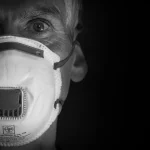Since 5 January, 223 patients have been hospitalised there and 1,927 patients have been examined in the outpatient clinics. “These figures show the will of the staff and director of the hospital to provide adequate medical assistance,” Beroš said.
He said that the ministry had contributed to the health system’s response in terms of redistribution of patients after the 29 December earthquake, adding that there had been no major problems with the transport of patients to other hospitals.
Beroš said that at today’s meeting they had discussed plans for the revitalisation of the Sisak hospital. He said that the provision of healthcare was currently complicated by the fact that the hospital’s wards had been moved to three different locations.
“Now is the time after this tragedy to sum things up, determine the further course of action and present the best ideas for this area,” the minister said, adding that the government would support such ideas.
Speaking of the coronavirus situation in the country, Beroš said that the government had decided to keep the current restrictions in place until the end of the month, citing the increased mobility of people, a rising incidence in some countries and the emergence of a new strain of the virus. As for the earthquake-affected area, he said that they had expected a larger number of coronavirus cases but that that had not happened.











